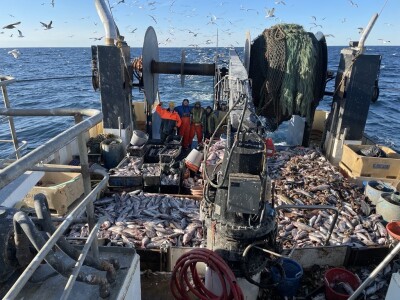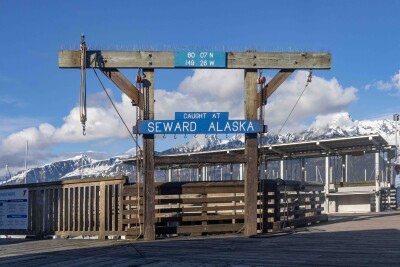Always angling
The era of individual fishing quotas introduced the fishing industry to the notion of privatizing a public resource as well as a whole new slate of regulatory loopholes.
At the December North Pacific Fishery Management Council meeting, Alaska’s federal managers voted to allow the state’s commercial halibut quota holders to sell quota to charter owners under a new system called RQE. Get used to that acronym, as I suspect we’ll be seeing more of it. It stands for recreational quota entity, and it very well may be the death knell of small-boat fishing communities first in Alaska, then perhaps California, the Gulf of Mexico, New England. In short, everywhere.
“The North Pacific council provides guidance to the rest of the country about how to provide allocations between different sectors,” Ricky Gease, of the Kenai River Sportfishing Association, told the Peninsula Clarion. “The complaint at many councils is that many allocations have been frozen shut. This provides a market-based approach for willing sellers, willing buyers, to bypass the deadlocks that are common in allocation issues across the country.”
But commercial halibut quota owners have long been allowed to lease quota to sportfishing guides. Allocations are never frozen shut. There is always a way in. This new way, however, could blow the doors off of public access to fish. The council voted to take fish from the public marketplace and land it on the plates of a privileged few. If you want Alaska halibut, you should start saving for a vacation.
It’s no surprise that this comes just as the halibut biomass appears to be recovering. That is exactly what happened in the Gulf of Mexico snapper fishery. The council implemented IFQs with the promise that consolidation and restricted fishing would bring the fishery back from the brink, and as the quotas rose, so would the fortunes of the lucky few who qualified to stay in business.
As soon as the biomass began to recover and commercial fishermen saw their promised rewards, in charged the ill-managed sport sector, demanding a higher percentage of the catch. Their season was too short, they wailed. Why? Because they were overfishing their 49.5 percent in a matter of days, year over year.
Why does no one seem to care about the lack of management and blatant overfishing in the sport fleet? Two words: tourist dollars.The Gulf council inches ever closer to losing oversight of the snapper fishery to the individual states, which are eager to hand over more quota to their tourism sectors. (See more on this in “Melancon ousted as La. fisheries secretary,” on p. 15.)
In New Bedford, Mass., the so-called Codfather, Carlos Rafael, took advantage of the lack of quota caps in the New England groundfish IFQ system. He bought up so much quota for his fish buying and selling business that he was allegedly able to falsify landings records and sell high-value, low-quota fish for cash after reportedly landing it under low-value, high-quota fish. His trial is expected to start in early February. The New England council has yet to address the quota cap loophole.
The public deserves to know what is happening in our food system. Though it may be too late to stop some of these changes, the word is spreading that IFQs are not the solution for consumers who care about sustainability. Read my review of Lee van der Voo’s new book “The Fish Market” on page 8 for more.
» Read more Editor's Logs here.
» Read more articles in our Febuary issue.
» Fish eNews offers the latestindustry news.
» Like us on Facebook.
Copyright © 2017 National Fisherman. All rights reserved.







